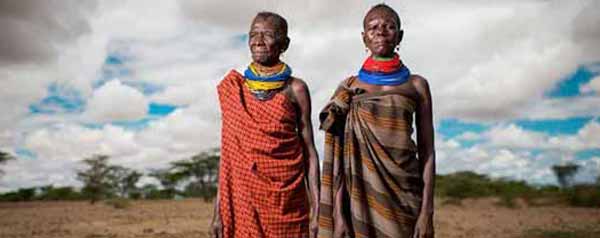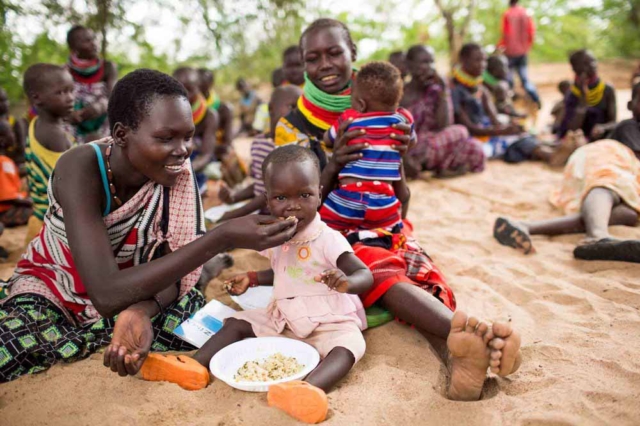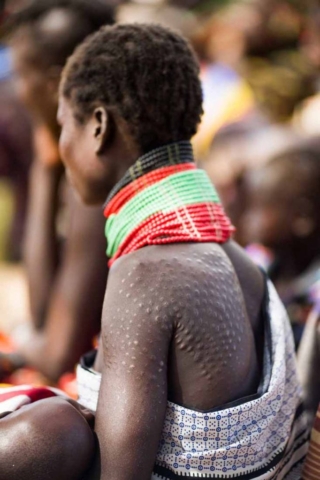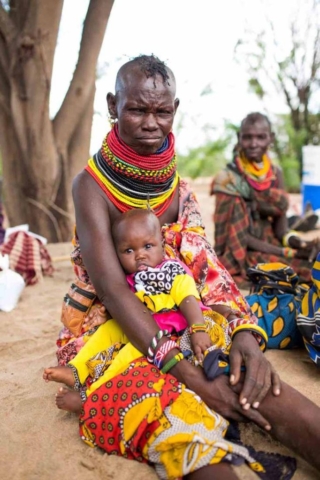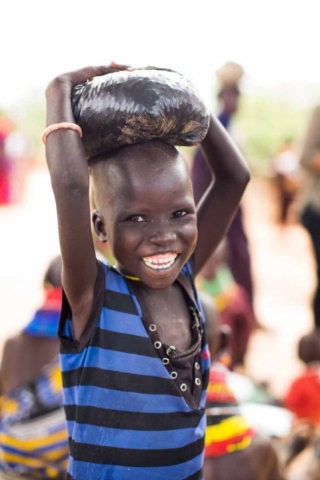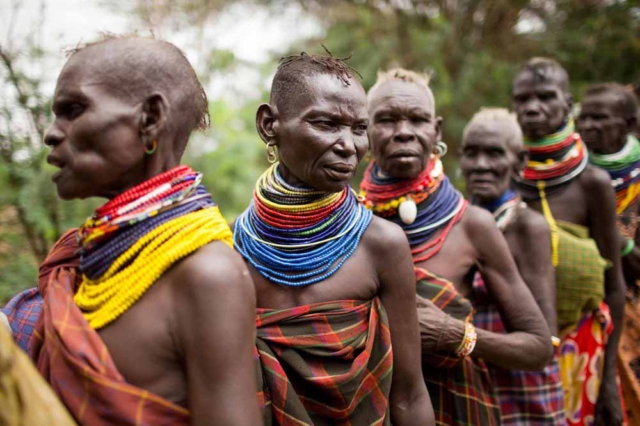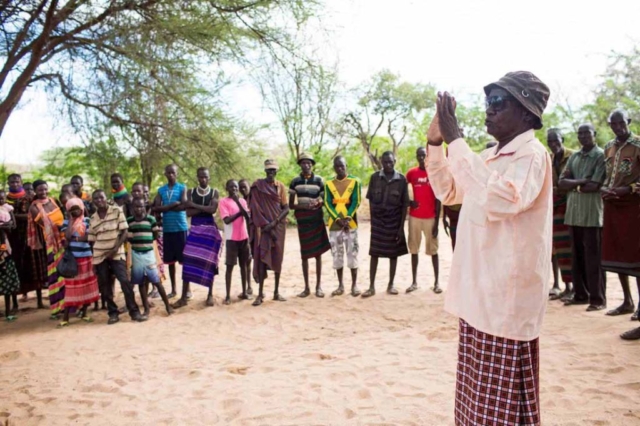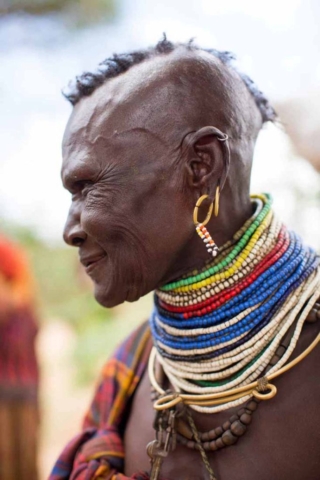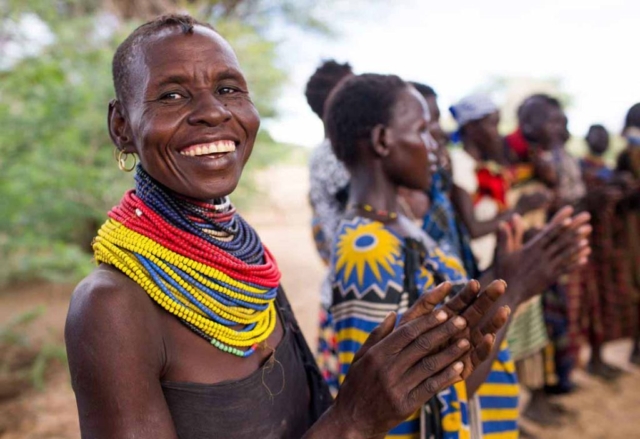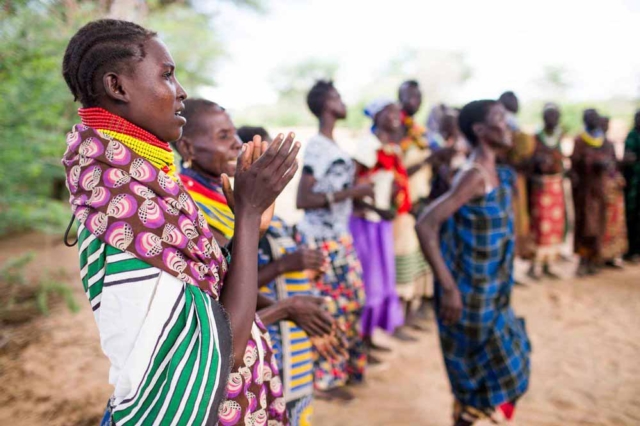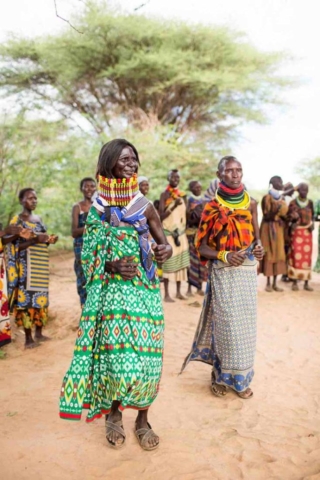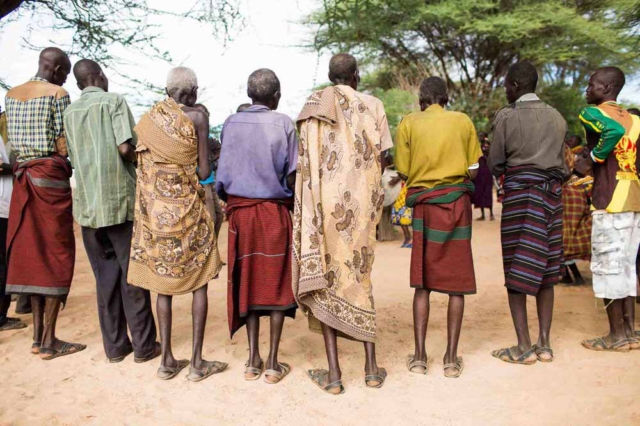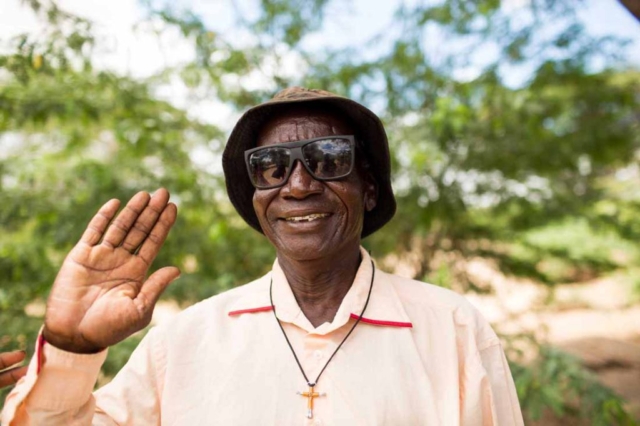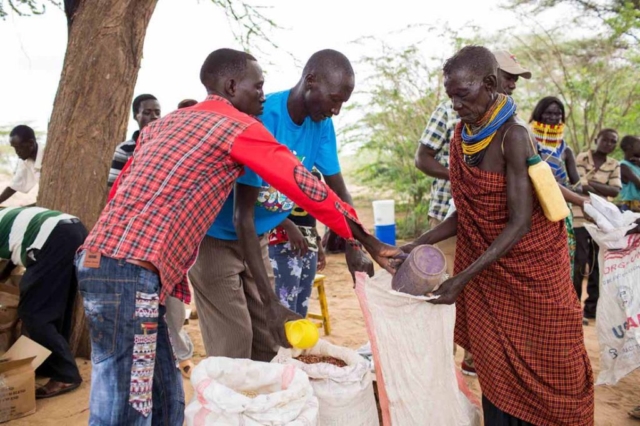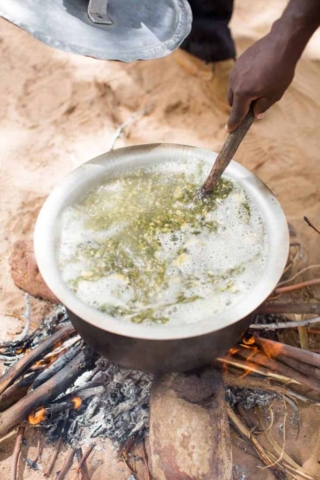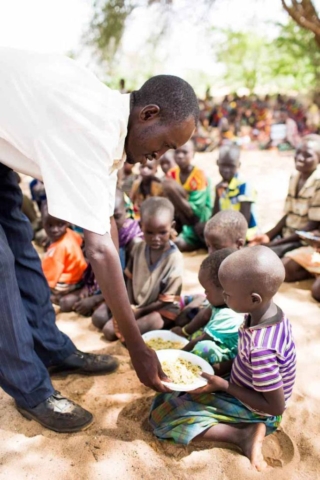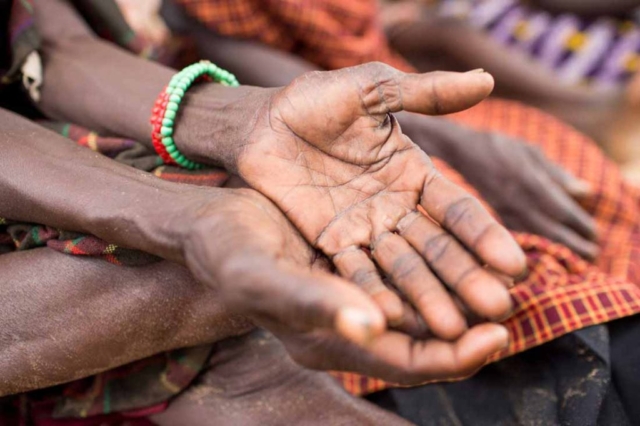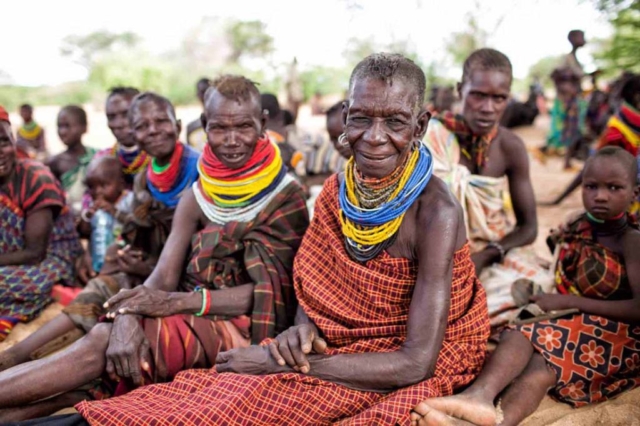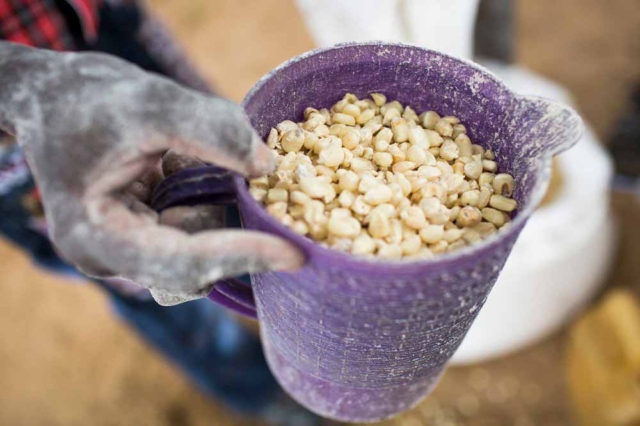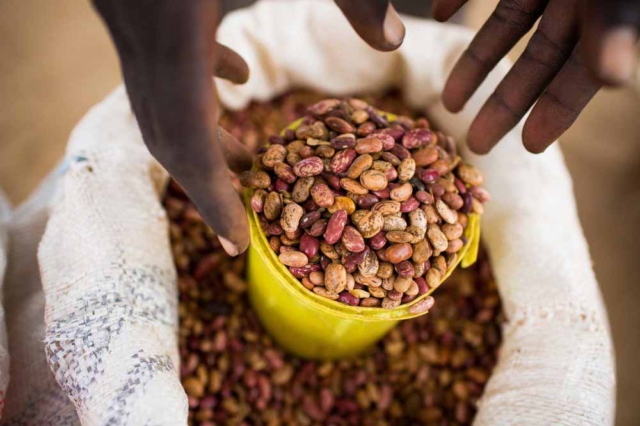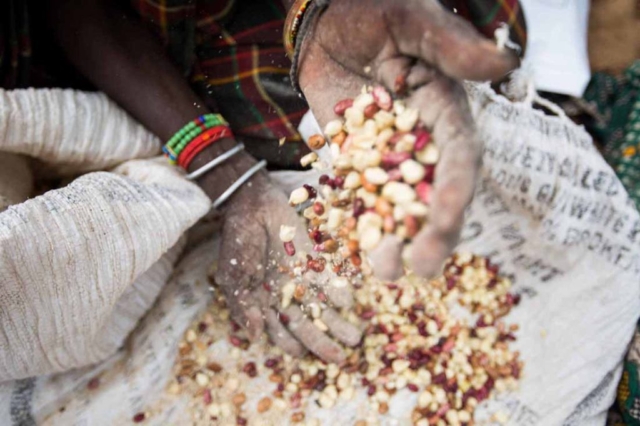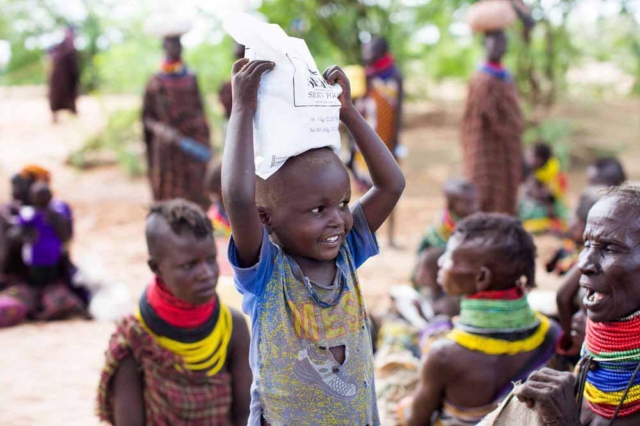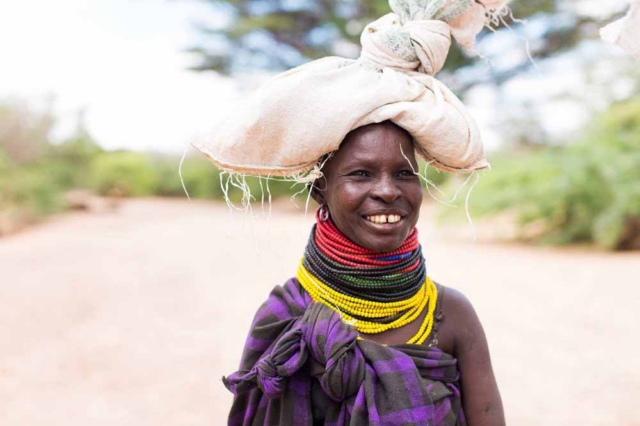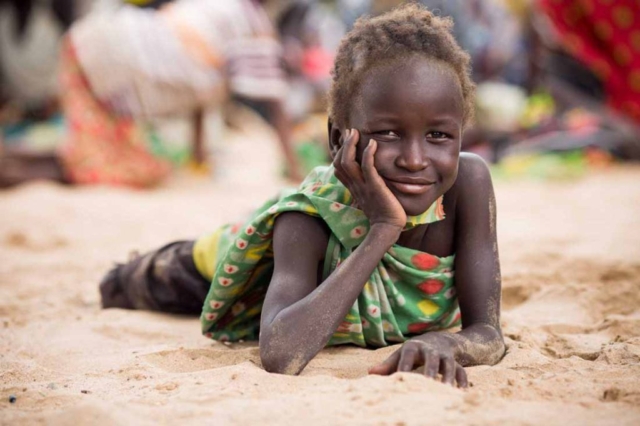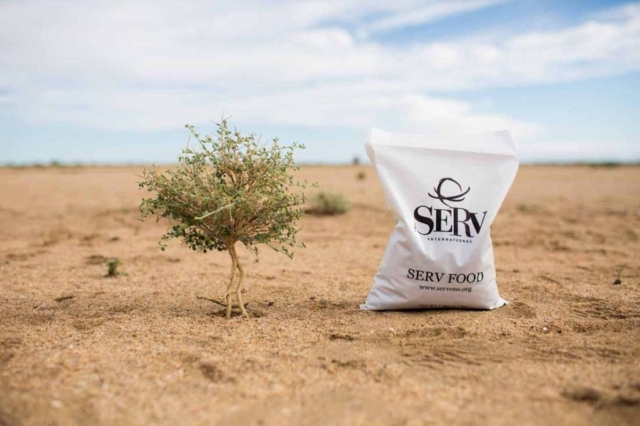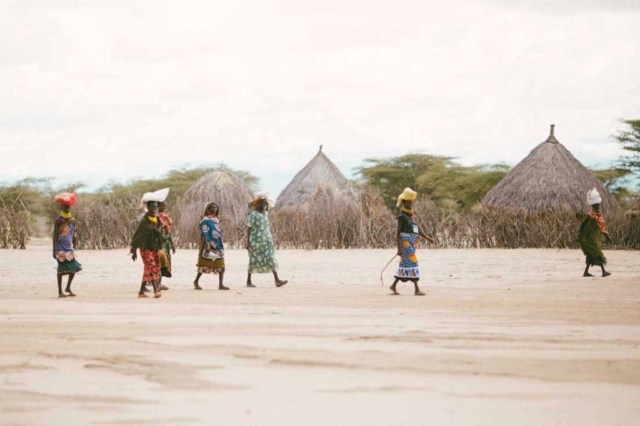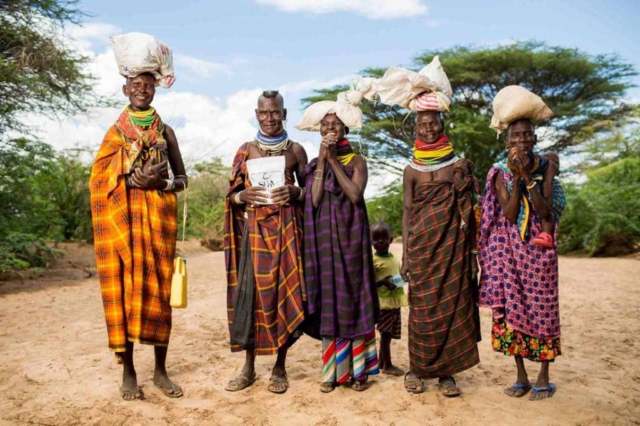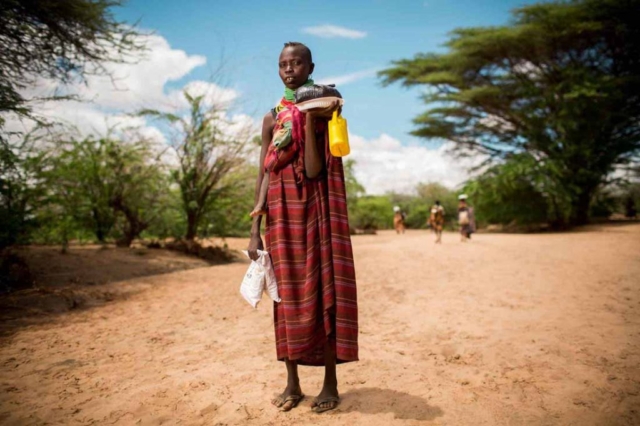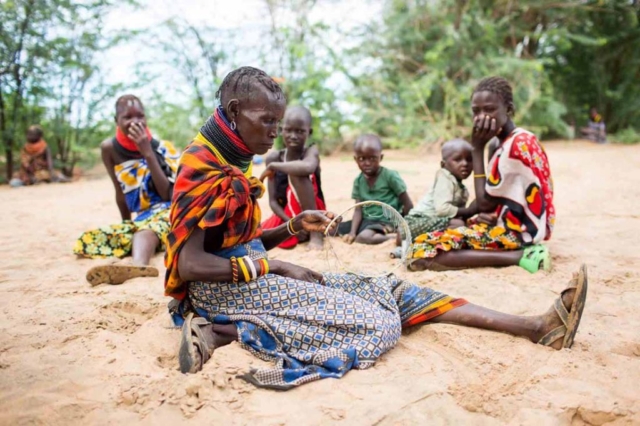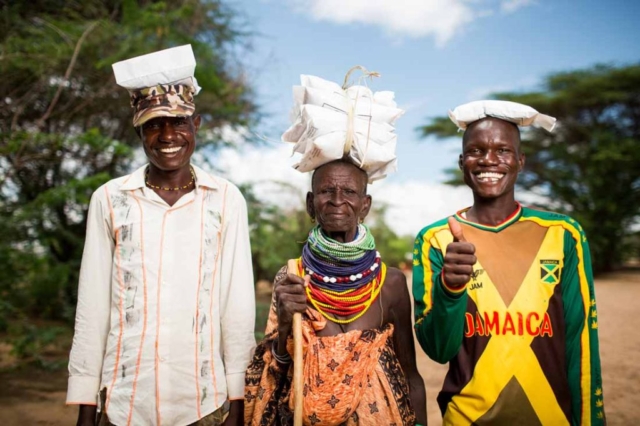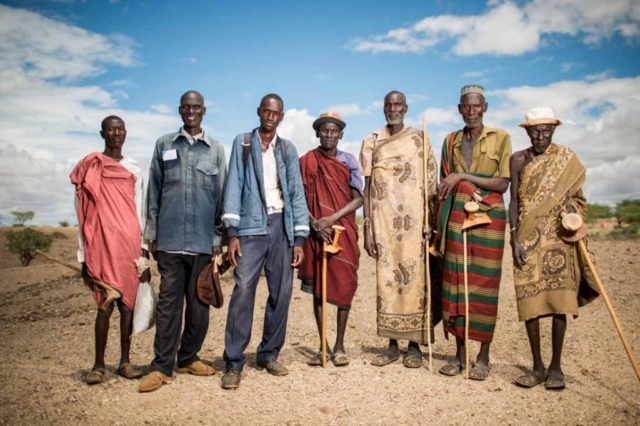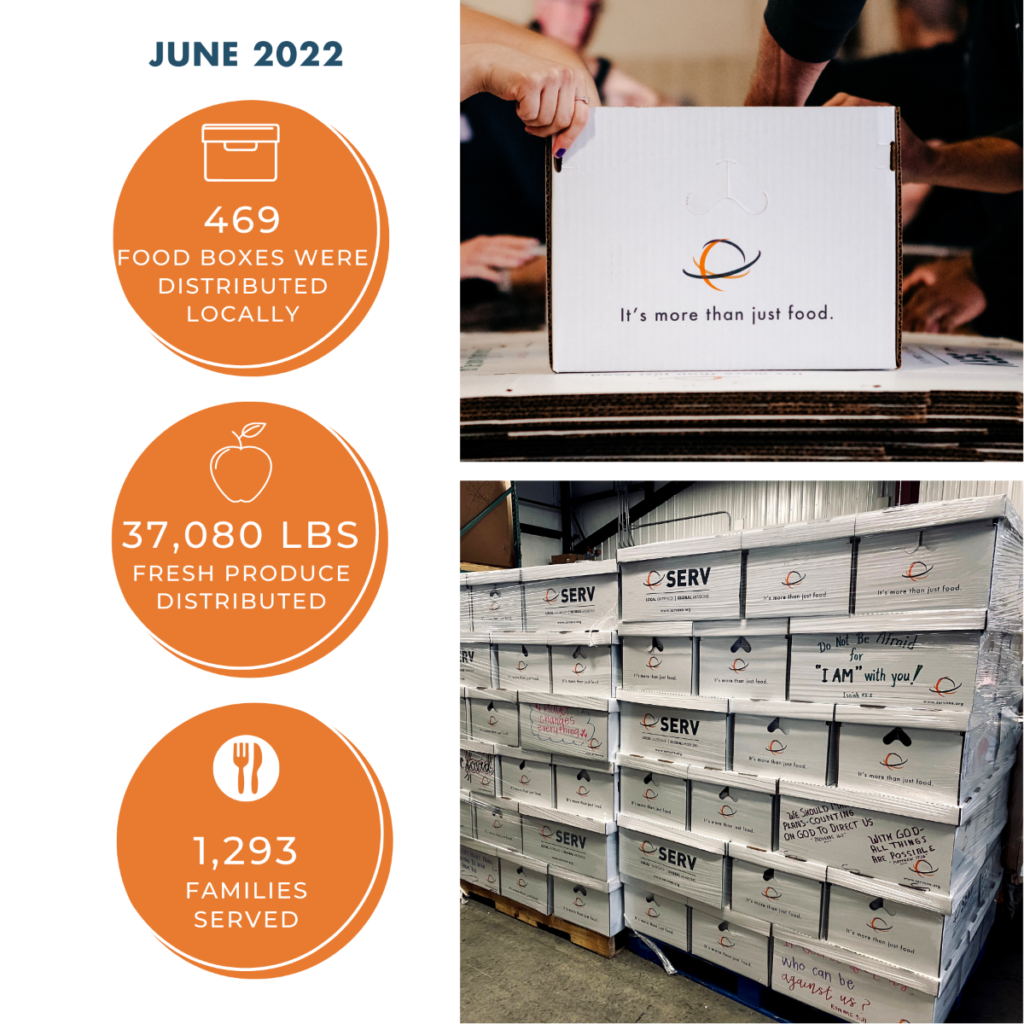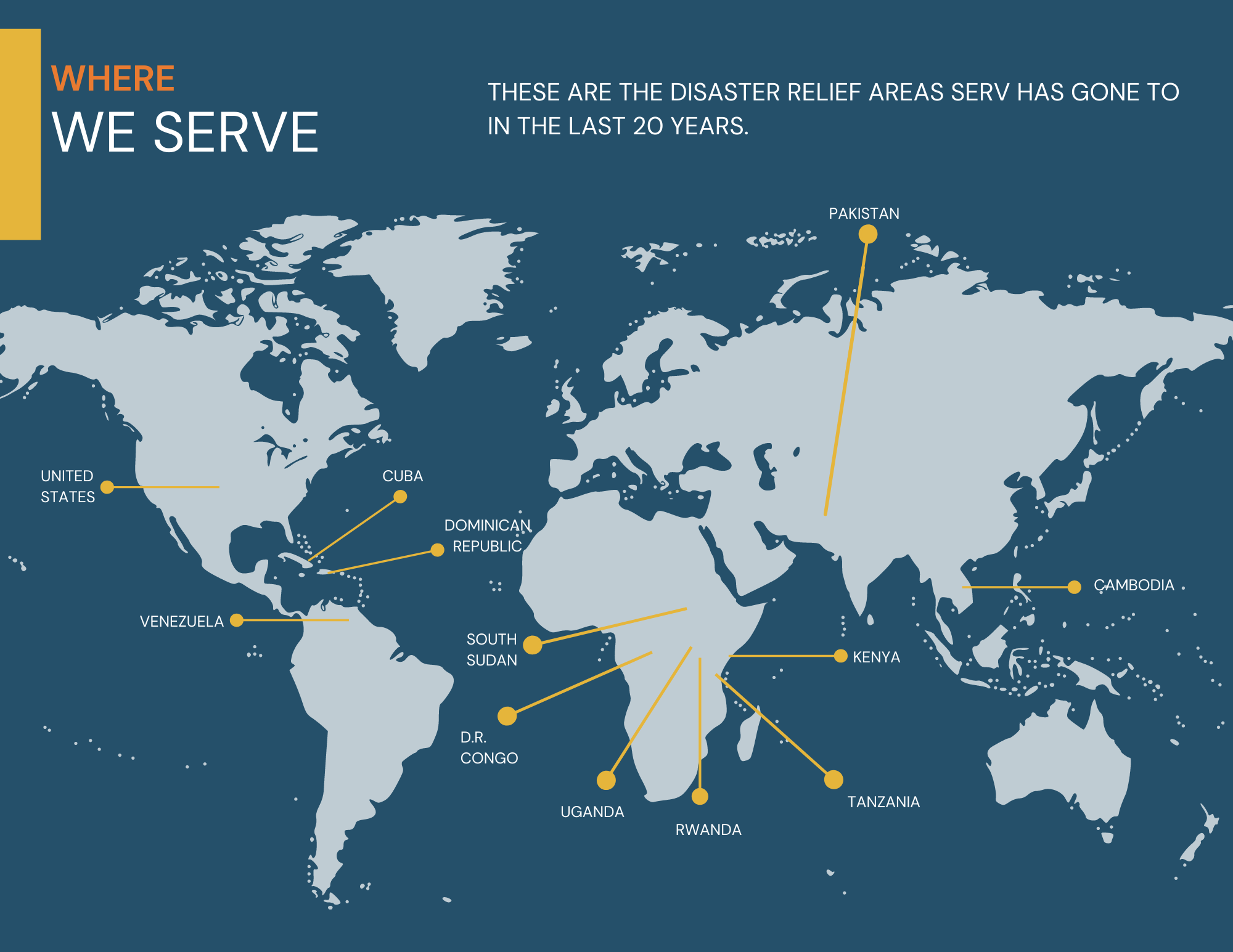PHOTOGRAPHY BY ESTHER HAVENS. WRITTEN BY CONSTANCE DYKHUIZEN WITH INTERPRETATION BY REBECCA AKIRU.
It all starts with food.
SERV International first started distributing food in Lodwar in 2006. The nomadic people in the area in and around Lodwar are of the Turkana ethnic group. Turkana people are pastoralists who live off the land, moving every year or so with their livestock in search of food and water.
The deserts of northwest Kenya where they live suffer extended periods of drought and famine that make existing food insecurity worse. Turkana people experience food poverty – defined as the inability to afford or have access to enough food to make up a healthy diet – at a staggering rate of 81%.
Through local staff and partners, SERV is always looking to help people in need. When Pastor Jackson told SERV staff about the village of Tiya, they decided to go and see for themselves. Tiya is isolated from services; there are no schools or healthcare nearby for the 300 villagers. People must walk 13 kilometers to receive healthcare and the closest well is a long walk away.
Isaiah Ewoi is the elected elder of Tiya. He functions like a mayor and judge, representing the village and settling disputes between community members. He explains the challenges facing Tiya’s population. Most people here eat only one meal a day. Villagers frequently suffer from diseases related to malnutrition and waterborne illnesses like cholera and typhoid. “The main vision is to get school for kids, clean water to drink and food,” he explains. “I hope that one day in time, people will be changed and life will get better.” While there are government and NGO organizations in the area, the aid doesn’t spread wide or deep enough.
Alice Edung, an elderly woman, has come to witness SERV’s first food distribution and water filter demonstration. It’s taking place under a tree along a dry riverbed that currently serves as the meeting place for church services and community meetings. Alice, like many older Turkana people, doesn’t know her age. She also doesn’t know how long ago it was that her husband died, only remembering that it was before the time that planes started coming to Lodwar.
Her husband died of starvation, she says matter-of-factly, her face resigned. Alice’s life hasn’t been easy. She gave birth to six children at home, but four died from illnesses like cholera and some of unexplainable diarrhea. Her remaining daughter, Ekadeli, accompanied her mother today and sits stoically at her side. Her son sits with the men nearby.
Turkana people prize livestock over money. They prefer to keep their savings accounts in the form of goats, and whenever they need food, they kill, sell or trade their animals. For a widow like Alice, who has no livestock left and no way to acquire animals, she has run out of options. “I have been hungry since I was little,” she admits. The last time she ate was some plain maize yesterday. She didn’t know where her next meal was coming from until SERV arrived with a distribution of bags of a vitamin-enriched blend of lentils and dried vegetables.
Alice isn’t just being dramatic. People still die of starvation in Lodwar. “Two years ago, I buried two people in Lolupe because of hunger,” recalls Thomas Ekai, the SERV Kenya and House of Hope Director. “SERV has helped people to have more life. It is nutritious food.” SERV has committed to providing food, water, shelter and life to the people of Lodwar, area Turkana villages and, now, to the people of Tiya.

